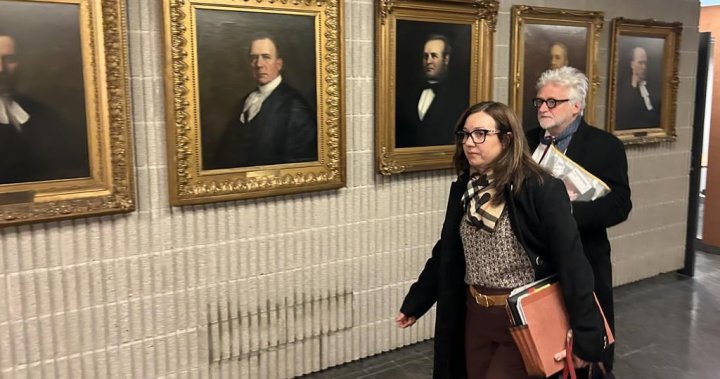Gilbert Rozon’s Civil Trial Commences: Accusations and Defense Strategies Unveiled
The Montreal courthouse became the stage for a high-profile legal battle as the civil trial of Gilbert Rozon, founder of the renowned Just for Laughs comedy festival, commenced. Nine women have come forward with allegations of sexual assault against Rozon, seeking a combined sum of nearly $14 million in damages. The trial, presided over by Quebec Superior Court Justice Chantal Tremblay, is anticipated to extend until the end of March 2025. It marks the latest chapter in a protracted legal saga that initially began as a class-action lawsuit but later transitioned into individual suits following a 2020 Quebec Court of Appeal ruling.
Rozon’s defense team, spearheaded by attorney Mélanie Morin, presented their opening arguments, vehemently denying any wrongdoing. Morin asserted that Rozon engaged in consensual relationships with three of the accusers, while refuting the remaining allegations. She strategically positioned Rozon as a scapegoat caught in the fervor of the #MeToo movement, suggesting the accusations were part of a concerted effort to identify a "Quebec Weinstein," drawing a parallel with the disgraced Hollywood producer.
Conversely, Bruce Johnston, representing the plaintiffs, argued that the sheer number of accusers lends credence to their claims. He posed a rhetorical question to Justice Tremblay, challenging the plausibility of all nine women fabricating their allegations. Johnston characterized Rozon as a “predator,” setting the stage for a fierce legal contest focused on proving the veracity of the accusations. This civil trial follows a previous criminal case in 2020 where Rozon was acquitted of rape and indecent assault charges stemming from alleged events in 1980.
Contextualizing the Allegations: #MeToo Movement and Power Dynamics
The emergence of these allegations against Rozon coincides with the rise of the #MeToo movement, a global phenomenon that has empowered individuals to speak out against sexual harassment and assault, particularly within industries where power imbalances are prevalent. The entertainment industry, with its hierarchical structure and often blurred lines between professional and personal relationships, has been a focal point of the movement. Rozon’s prominent position within the comedy world as the founder of Just for Laughs adds another layer of complexity to the case, raising questions about potential abuse of power and influence.
The #MeToo movement has been instrumental in fostering discussions about consent, accountability, and the systemic nature of sexual misconduct. It has also highlighted the challenges faced by survivors who come forward with their stories, often encountering disbelief, victim-blaming, and legal hurdles. The Rozon trial, irrespective of the outcome, serves as a microcosm of the broader societal reckoning with sexual assault and the struggle to achieve justice for survivors.
Legal Strategies and Potential Outcomes: A Complex Path to Justice
The legal strategies employed by both the defense and the plaintiffs will be crucial in shaping the trajectory of the trial. The defense’s portrayal of Rozon as a victim of circumstance, caught in the crosshairs of a social movement, aims to cast doubt on the accusers’ motivations and credibility. Conversely, the plaintiffs’ emphasis on the number of accusers seeks to establish a pattern of behavior, suggesting that the allegations are not isolated incidents.
The trial is expected to delve into the specifics of each allegation, examining the evidence presented and the credibility of witnesses. The judge’s role will be to assess the evidence impartially and determine whether the plaintiffs have met the burden of proof in establishing that Rozon committed the alleged acts of sexual assault. The outcome of this trial carries significant implications not only for the individuals involved but also for the ongoing conversation about sexual misconduct, power dynamics, and accountability within the entertainment industry and beyond.
The Impact on Just for Laughs: Navigating Reputation and Legacy
The allegations against Rozon and the ensuing legal proceedings have inevitably cast a shadow over Just for Laughs, the internationally acclaimed comedy festival he founded. The festival, known for showcasing comedic talent from around the world, has had to navigate the reputational damage and grapple with questions about its future.
The organizers of Just for Laughs have sought to distance themselves from Rozon, emphasizing their commitment to creating a safe and inclusive environment for all participants. However, the enduring association with the festival’s founder poses a challenge in rebuilding trust and reassuring the public that the organization has taken appropriate measures to address the underlying issues that allowed the alleged misconduct to occur.
The Broader Societal Implications: A Catalyst for Change?
The Rozon trial, like other high-profile cases involving allegations of sexual misconduct, contributes to the ongoing societal dialogue about consent, accountability, and the need for systemic change. It underscores the importance of believing survivors, creating safe spaces for reporting abuse, and holding perpetrators accountable for their actions.
The outcome of the trial, regardless of the verdict, will undoubtedly have ripple effects throughout the entertainment industry and beyond. It may serve as a catalyst for further discussion and action to address the root causes of sexual harassment and assault, fostering a culture of respect and equality.
The Long Road Ahead: Seeking Justice and Healing
The Rozon civil trial marks a significant step in the pursuit of justice for the nine women who have come forward with their allegations. It also represents a critical moment for the entertainment industry and society as a whole, prompting reflection on the prevalence of sexual misconduct and the challenges faced by survivors in seeking redress. The trial’s outcome, and the subsequent actions taken by relevant institutions, will play a crucial role in shaping the future and fostering a safer, more equitable environment for all.

